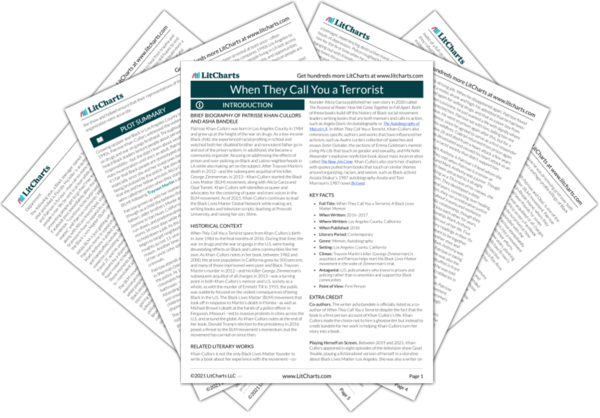Previous
Chapter 6
|
Previous
Chapter 6
|
When They Call You a Terrorist: Chapter 7 Summary & Analysis |
Next
Chapter 8
|


Upgrade to unlock the analysis and theme tracking for all of When They Call You a TerroristWhen They Call You a Terrorist!
Get LitCharts A+